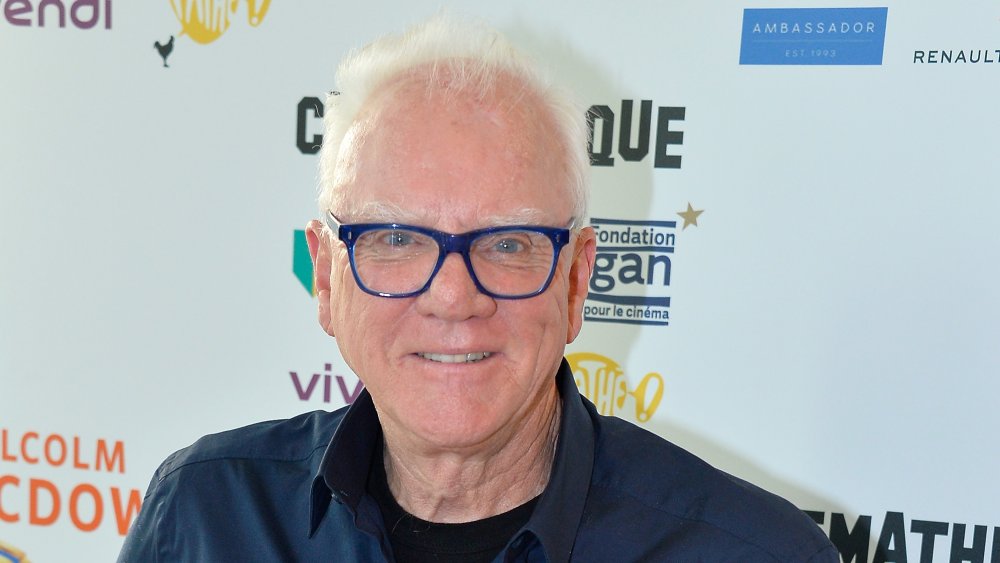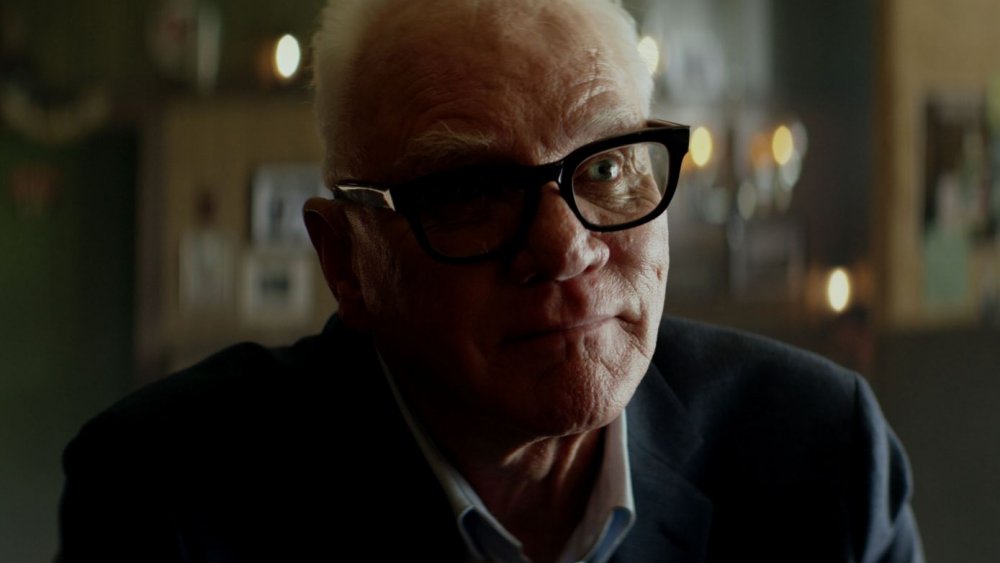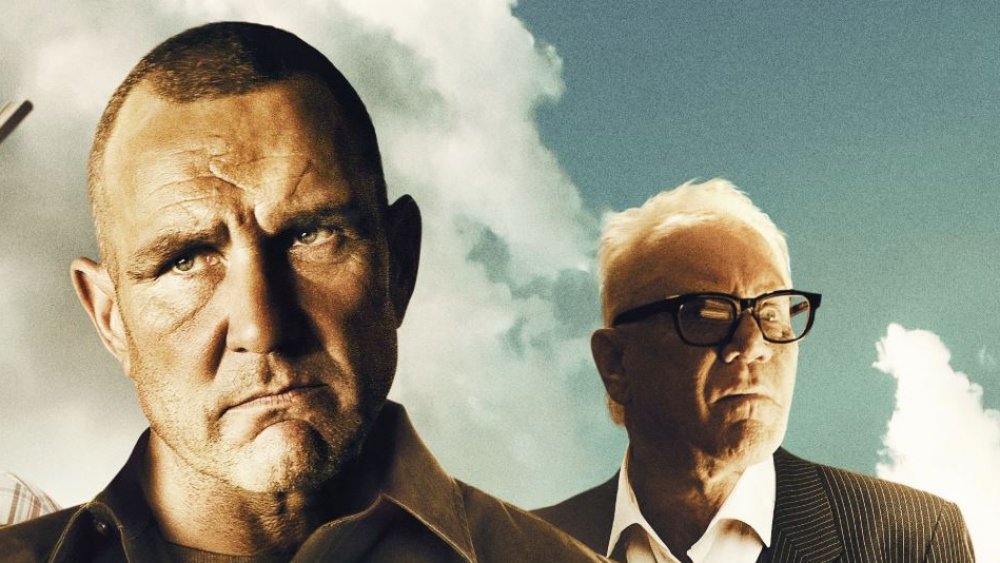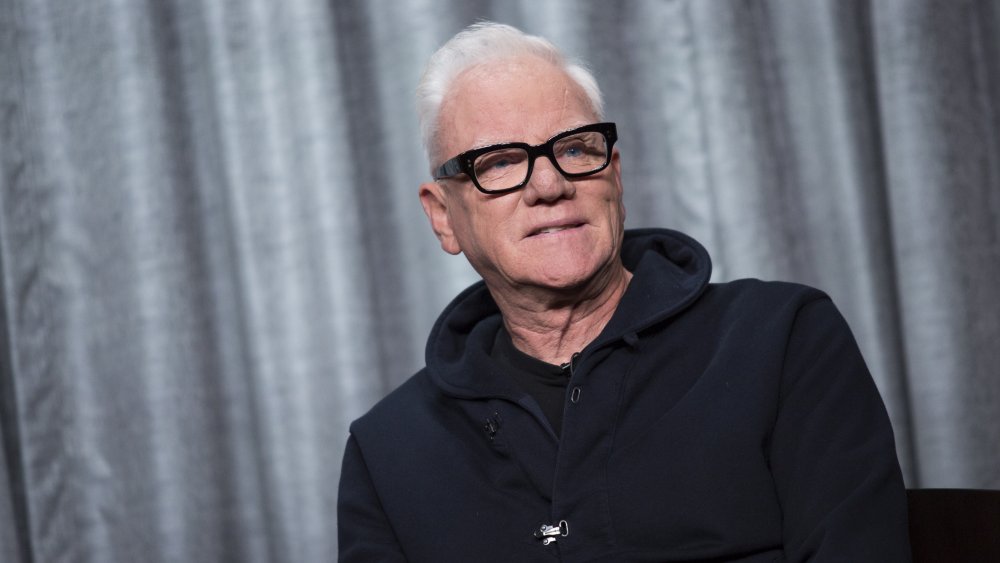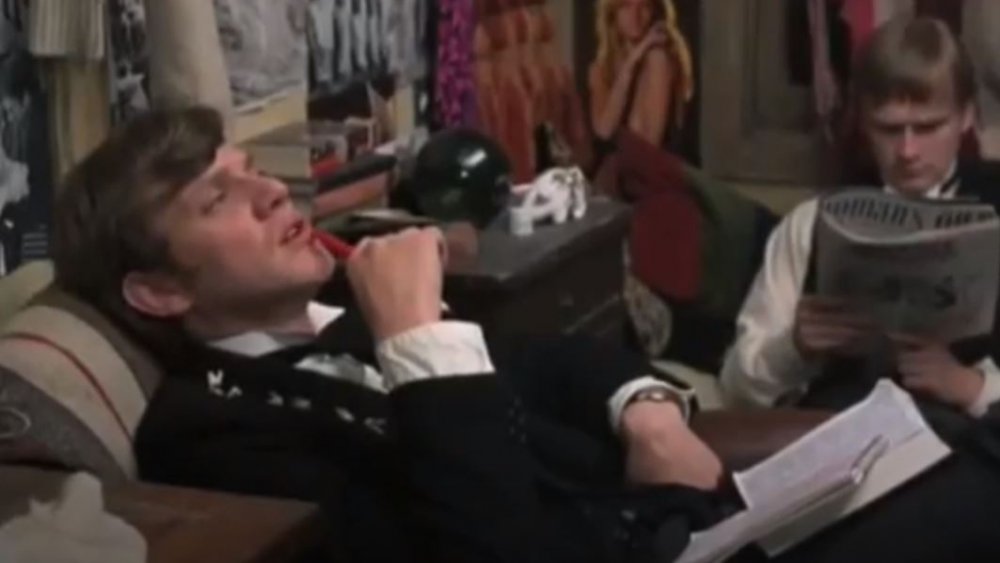Malcolm McDowell Talks The Big Ugly - Exclusive Interview
The Big Ugly, from writer/director Scott Wiper, is about an oil deal gone bad after someone disappears. Screen legend Malcolm McDowell plays Harris, the Perrier-sipping British gangster offering the money in the oil deal as part of a laundering operation. Harris is out of place in the coal and oil country of West Virginia, but needs to get the deal done — and needs to contain his henchman Neelyn (Vinnie Jones), who is on his own quest for revenge. Harris, as a gangster with a modicum of taste, is both refined and crude — sometimes offing people for badmouthing him, but also giving people second chances when they don't deserve them.
Looper interviewed McDowell during promotion for The Big Ugly, and he told us all about the movie and especially his relationship with Vinnie Jones. He also told us about how he's still making movies at such a ridiculous pace — and about his career beginnings.
Playing a British gangster in The Big Ugly
SPOILERS FOR THE BIG UGLY IN THIS SECTION
What attracted you to The Big Ugly?
Oh, I think Vinnie Jones called me, and said he was going to send this script, and he wanted me to do it. And I knew Vinnie a little bit, I play golf with him, and I've always been a great fan of Vinnie Jones — not that I would tell him that, but I always liked Vinnie on screen. He was always interesting, and he always played a very good thug, you know? And so, when I read the script, I realized that this was a really good chance for him to show a little more of what he can do, you know? That he's not just a villain. And so I was very happy to do it. And I love working with him. He's actually, he's loud, and full of bluster, but underneath all that, he's actually a very sensitive, vulnerable guy. And he's a lovely man, actually.
You've worked with a bunch of interesting people. You've already mentioned Vinnie Jones, but what's it like working with Ron Perlman?
I enjoyed it very much. Ron, he's a very accomplished actor, and it was a pleasure. The scene, the dual death scene at the end was fantastic to shoot. It's a powerful scene. And that's the main scene I have with him really, is basically when we kill each other, but I enjoyed it very much. But of course, I had a lot more to do with Vinnie. So I remember that more, because Vinnie in the jail cell, that was a terrific sequence too.
That was a great scene.
There were some nice scenes in it. Yeah. There were. And he really stepped up to the plate, and he delivered. And it was really nice to see. I love teasing him, of course, you know? And I would tease him saying, "Yeah, it's typical, because you have to get a real actor to come in to save this bloody movie." And stuff like that. And just tease the crap out of him. So basically that's our relationship. One of, a bit like that, leg pull. But no, I love the guy. He's a great guy.
A villain, a goof, and having fun
Your character is undeniably villainous, but he has a good heart. He gives people a lot of second chances when they probably shouldn't have them. How do you get in the head space to do that kind of role?
Oh, that's not too difficult. I mean we had a pretty good script, and I liked it. I brought my own thing to it, I think. But I enjoyed that. I enjoy playing the villain occasionally. I've been off doing television for the last 10 years, mainly doing comedy, with Mozart in the Jungle, and playing a conductor who's a bit of a buffoon at an orchestra, and having a girlfriend with Bernadette Peters. That was fun. That was more than fun, actually, I just loved every minute of that. So doing a villain here and there, I'm very happy to do it. They're usually fun parts, usually, and this was no different. We had some terrific sequences, and Scott Wiper, our director, did a stellar job. He wrote it, he was obsessed with it. He's still obsessed with it, as far as I can see, and which of course you have to be. It's like his child. And he's a lovely guy. So anyway, Vinnie puts his money where his mouth is. He actually raised the money to do the movie, I think. I mean, it's pretty amazing.
What do you want people to take away from the movie?
Oh my God. I just hope they enjoy themselves. We're not making Shakespeare here. We're just having fun, we're just telling a little story, and we just want to entertain, and take people's mind off the pandemic for two hours, or an hour and a half, whatever it is. Or whatever troubles people have, you know? [...] I just hope that they're a little bit entertained, and engrossed in it. That's it. That's all you can ask for. That's it.
How Malcolm McDowell still makes so many movies
So, you've had a very long career, and you seem to be more prolific than ever. How do you keep such a breakneck pace and schedule with all these movies you're making?
Well, if I do a movie, it'll be a week, 10 days, or two weeks, or whatever. So I can flip from one to the other. So I'm not playing the lead in the movie, I'm a supporting part. A cameo or something. And I do that. I don't mind doing that because I don't want to be too long away from home. So I'm happy to do it. Because I've got young kids, and I want to be around for them, and stuff. And so I was having a bit of fun thing.
Some of them, I can't remember what the hell they were, because they changed the title, or something, and people go, "Oh, I really enjoyed you in Fallout." I went, "Um, Fallout? I have never been in a movie called Fall –" "Oh yeah, yeah. It's you." "No, no it's not me. You've got mixed up with probably with Terence Stamp or something." And they go, "No, no, no, no, it's you." And they go get the box, the DVD and there it is. There it is. I go, "Oh my God. Oh yes. You're right. Yeah. Well, it's they changed the title of the movie." Which they do all the time.
Anyway, so yes, I do work quite a lot. And I think that the answer is why do I work a lot? It's because I enjoy it. I love what I do. And I still have, I get great kicks out of it. I still have a lot of fun. And I think honestly, if I'm not having fun, then the audience is not having fun watching me.
McDowell's early career
I know you just mentioned you have a long career, but as much as you've done there's a couple of roles people always come back to you on. You know, Alex in A Clockwork Orange, or if you're a nerdy group, maybe Star Trek Generations, maybe Caligula, if they're a film nerd like me. Do you have any regrets? Not regrets, but what do you think about having such a long career, but having just a few roles really loom so large over it?
Well, look, I think every actor is the same way, unless you're Meryl Streep, who literally is a phenomena. We'll never see the like again of Meryl, who's, of course, sublime, and has played many great, great roles. And so it's hard to say which is her best. And I think in most actors will be known for just one or two roles, that are so impressionable. There's nothing you can do about that. You know, the first movie I made was called If... and it's an amazing movie, and it really caused quite a stir when it came out, especially in England. It's about a revolution in a boys boarding school. And that really stuck a dagger into the heart of the establishment in England. And it caused quite a furor, people were up in arms about it, but it's a brilliant movie. And to start with such a great film, it was great luck, but I mean I would have done any film. Basically, I would have been happy to have been in a Hammer horror movie.
You know, I was a young actor, of course. And I was working on the stage, like every young actor in England. You start in one of the theater companies, the National. I was at Royal Shakespeare Company as a young man. And I worked at the Royal Court Theater, and did television occasionally. And then, when I was young, I was only 23 or something, I was cast in the lead in this movie with a genius director [Lindsay Anderson, director of if...]. That was the luck, that I was working with a man that was as near a genius as you'll ever get. He was an extraordinary man, and he became a great friend. And I loved him dearly, and he had more influence on my career than anyone. And on my life, by the way, not just my career, my life. He was an amazing man. And in fact, he'd be so amazed, the stage show [Never Apologize], which they shot and made a movie of, of my relationship with him, and what it was like in London, in the early '70s, writing the script of the next movie, and with all the people that came into our orbit. The people like John Gill, Alan Bates, and [Laurence] Olivier, and all these people that we were involved with it. It was an amazing life, an amazing time.
Catch Malcolm McDowell in The Big Ugly, now at selected theaters, drive-ins, and VOD.
